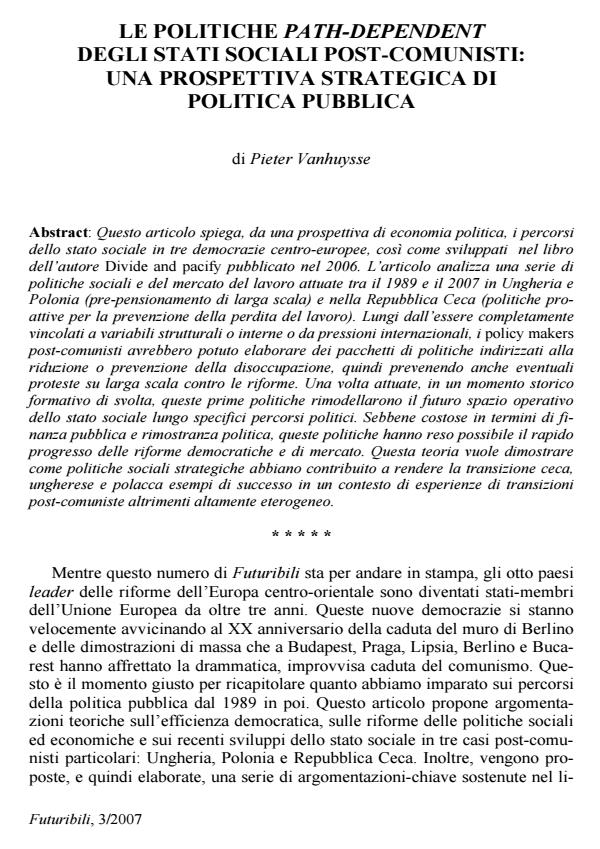Le politiche path-dependent degli stati sociali post-comunisti: una prospettiva strategica di politica pubblica
Journal title FUTURIBILI
Author/s Pieter Vanhuysse
Publishing Year 2008 Issue 2007/3
Language Italian Pages 24 P. 81-104 File size 167 KB
DOI
DOI is like a bar code for intellectual property: to have more infomation
click here
Below, you can see the article first page
If you want to buy this article in PDF format, you can do it, following the instructions to buy download credits

FrancoAngeli is member of Publishers International Linking Association, Inc (PILA), a not-for-profit association which run the CrossRef service enabling links to and from online scholarly content.
Path-dependent policies in the post-Communist welfare states: A strategic perspective on public policy From the point of view of economic policy, this article explains the paths followed by the welfare state in three central European democracies, as traced by the author in his book Divide and Pacify (2006). It focuses on social and employment policies implemented between 1989 and 2007 in Hungary and Poland (large-scale early retirement) and in the Czech Republic (pro-active policies to prevent job losses). Far from being hidebound by internal structural variables or international pressure, post-Communist policy-makers were able to devise policy packages designed to reduce or prevent unemployment and so forestall any large-scale protest against reforms. Implemented at a crucial historical juncture, these initial policies reshaped the future operational space of the welfare state along specific political lines. Though costly in terms of public funding and political resistance, these policies paved the way for the rapid progress of democratic and market reforms. This analysis is designed to demonstrate how strategic social policies helped to make the Czech, Hungarian and Polish transformations examples of success in a context of markedly varied experiences of post- Communist transformation.
Pieter Vanhuysse, Le politiche path-dependent degli stati sociali post-comunisti: una prospettiva strategica di politica pubblica in "FUTURIBILI" 3/2007, pp 81-104, DOI: